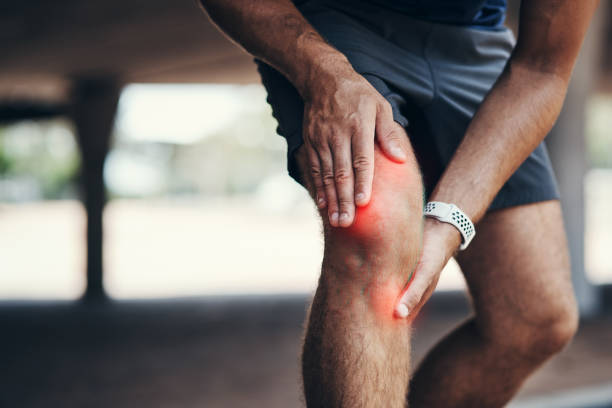By Evans Matthews
As men grow older, many begin to notice changes in their energy levels, sexual performance, mood, and body composition. While these shifts are often dismissed as “normal ageing” or “just stress,” one important yet under-discussed factor may be responsible—a decline in testosterone.
Testosterone is the primary male sex hormone, essential for developing male sexual characteristics, muscle mass, energy, bone density, and libido. Starting from the age of 30, testosterone levels begin to drop gradually in men—a process sometimes called male menopause or andropause. This article explores how testosterone changes with age, the symptoms of low testosterone, its connection with common health problems and what men can do to manage it, including lifestyle and medical options.
What is Testosterone?
Testosterone is produced mainly in the testicles (and in smaller amounts by the adrenal glands). It is responsible for:
· Deepening of the voice during puberty
· Growth of facial and body hair
· Development of muscles and strength
· Production of sperm and maintenance of sexual desire
· Bone density and overall vitality
·
In women, testosterone is also produced in small quantities and is essential for bone health and mood regulation.
Testosterone Declines with Age
Research shows that after age 30, testosterone levels in men decline by about 1% every year (Harman et al., 2001). While this decline is natural, some men experience a significant drop that leads to various physical and psychological symptoms. This condition is medically known as late-onset hypogonadism or age-related testosterone deficiency.
Unfortunately, in Nigeria, many men suffering from these symptoms either ignore them or treat them with herbal mixtures, energy drinks, or unregulated sexual enhancers, which may mask symptoms or cause harm.
Symptoms of Low Testosterone in Ageing Men
The signs of low testosterone can vary, but common symptoms include:
· Reduced libido or interest in sex
· Erectile dysfunction
· Fatigue and low energy
· Depression or mood swings
· Decreased muscle mass and strength
· Weight gain, especially around the belly
· Loss of body hair or thinning beard
· Decreased motivation or self-confidence
· Difficulty concentrating or memory issues
Due to cultural expectations, many men in Nigeria do not openly discuss such symptoms, especially sexual, leading to misdiagnosis or no diagnosis at all.
How is Low Testosterone Diagnosed?
To confirm testosterone deficiency, doctors rely on both symptoms and blood tests. A diagnosis typically includes:
1. Medical History and Physical Examination
The doctor will ask about symptoms, lifestyle, alcohol intake, sleep quality, and general health.
2. Blood Test for Testosterone Levels
Blood samples are usually taken in the morning when testosterone is at its peak. Levels below 300 ng/dL (10.4 nmol/L) are generally considered low (Bhasin et al., 2010).
3. Further Tests
Additional tests may be done to check for underlying conditions such as diabetes, thyroid problems, or pituitary gland issues.
Why Men Should Care About Testosterone and Ageing
The drop in testosterone doesn’t only affect sexual function. It can also contribute to non-communicable diseases (NCDs) that are becoming more common in Nigeria for example.
1. Diabetes and Obesity
Low testosterone is linked with insulin resistance, central obesity (potbelly), and type 2 diabetes—diseases on the rise in Nigeria. In fact, some men find that their diabetes management improves when their testosterone is corrected (Grossmann et al., 2008).
2. Cardiovascular Disease
Some studies suggest that men with low testosterone have a higher risk of heart disease, hypertension, and stroke, although the relationship is complex and not fully understood (Corona et al., 2011).
3. Bone Health
Testosterone plays a crucial role in bone strength. Low levels can increase the risk of osteoporosis and fractures, especially in elderly men who may not consume enough calcium or get regular bone health checks (Khosla et al., 2001).
4. Mental Health
Low testosterone can lead to depression, low self-esteem, and even forgetfulness or brain fog. Sadly, in Nigeria, mental health is often misunderstood, and men suffering from mood issues are sometimes told to “man up,” which worsens their condition.
Testosterone Replacement Therapy (TRT): What You Need to Know
If a man is diagnosed with low testosterone and is symptomatic, he may be a candidate for testosterone replacement therapy (TRT).
Forms of TRT include:
· Injections (available in Nigeria but often misused)
· Patches or gels (less available)
· Oral formulations (emerging options)
Benefits of TRT:
· Improved sexual function
· More energy and reduced fatigue
· Increased muscle mass and strength
· Better mood and motivation
· Improved control of blood sugar (in some diabetics)
Risks of TRT:
· Increased red blood cell count, which may raise stroke risk
· Worsening of prostate problems, including benign prostatic hyperplasia (BPH)
· Fertility suppression—TRT can reduce sperm production
· Possible cardiovascular concerns, though more studies are needed
Due to these risks, TRT should only be prescribed by a qualified endocrinologist or urologist, not by chemists or through self-medication, which is sadly common in Nigeria.
Cultural and Systemic Barriers in Nigeria
Several issues hinder awareness and proper management of testosterone deficiency in Nigeria:
· Stigma: Men may feel ashamed to admit weakness or sexual issues.
· Self-medication: Many rely on unregulated supplements or local concoctions.
· Lack of Specialists: Few endocrinologists are available in Nigeria, especially in rural areas.
· Cost: Hormone tests and therapy can be expensive and are rarely covered by health insurance.
Natural Ways Men Can Boost Testosterone
While testosterone decline is natural, certain lifestyle changes can help men slow the process or reduce its impact:
1. Exercise Regularly
Weightlifting and resistance training increase testosterone naturally.
2. Eat a Balanced Diet
Incorporate zinc-rich foods (like beans, groundnuts, crayfish), healthy fats (like palm oil, avocados), and plenty of fruits and vegetables.
3. Get Enough Sleep
Poor sleep can significantly lower testosterone. Aim for 7–8 hours per night.
4. Reduce Alcohol and Tobacco Use
Excess alcohol (especially “dry gin”) can damage the testes and reduce testosterone.
5. Manage Stress
Chronic stress raises cortisol, which lowers testosterone. Activities like prayer, meditation, walking, and relaxation help.
6. Get Sunshine or Vitamin D
Vitamin D is linked to testosterone production. Moderate sun exposure or supplements may help, especially in urban dwellers.
In conclusion, Testosterone decline with age is a natural process, but for some Nigerian men, it can lead to a poorer quality of life and even serious health risks. Early recognition, proper testing, and safe treatment under medical guidance can significantly improve outcomes. Unfortunately, cultural stigma, self-medication, and lack of access to care remain big challenges in Nigeria.
It is time for Nigerian men—and their partners—to openly discuss men’s health, including testosterone and ageing, and seek professional help where necessary. Good health is not just about being strong or manly—it is about understanding your body, making wise choices, and living well.
References
1. Harman, S. M., et al. (2001). Longitudinal effects of aging on testosterone levels. J Clin Endocrinol Metab, 86(2), 724–731. https://doi.org/10.1210/jcem.86.2.724
2. Bhasin, S., et al. (2010). Testosterone therapy in men with androgen deficiency. J Clin Endocrinol Metab, 95(6), 2536–2559. https://doi.org/10.1210/jc.2008-2369
3. Grossmann, M., et al. (2008). Testosterone levels and diabetes. Diabetes Care, 31(5), 911–917. https://doi.org/10.2337/dc08-0200
4. Corona, G., et al. (2011). Testosterone and metabolic syndrome. J Sex Med, 8(1), 272–283. https://doi.org/10.1111/j.1743-6109.2010.02057.x
5. Khosla, S., et al. (2001). Testosterone and bone density. J Clin Endocrinol Metab, 86(6), 3555–3561. https://doi.org/10.1210/jcem.86.8.7704





